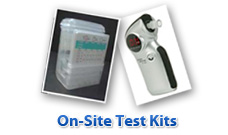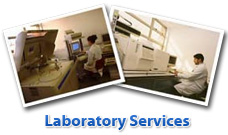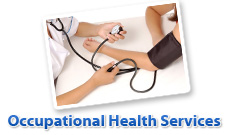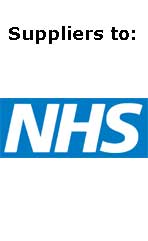Drugs and Alcohol Screening At Work
Encouraged by a demand to safeguard well-being, health and safety of employees and contractors, random substance misuse testing has eventually become more and more commonplace across Britain. Yet, there are still several misinterpretations surrounding the strategy, which might trigger apprehension amongst the workforce subject to screening.
Drugs and Alcohol Screening At Work – Where is the risk?
A significant proportion of the population make the assumption that the effect of drugs of abuse within the work environment is a trivial issue. Each and every one of us has seen Christmas time drink-driving television campaigns and as a consequence, know that drink-driving and drug-driving is not safe, so shouldn’t we be able to rely upon the public’s common sense? Alas, in the region of half of all workplace and roadside fatalities across the United Kingdom relate to drink, drug misuse, or a combination of both. Up-to-date research reveal that more than seventy percent of illegal drug users are engaged in full-time jobs, meaning that the average drug abuser is, effectively, the average company employee. Modern Home Office research put the volume of 16 to 29-year-olds that have engaged in illicit drugs in the last 12 months at just over fifty percent. On that basis, it is irresponsible to view this as somebody else’s concern, as it impacts just about every single workplace. While the intermittent use of narcotics doesn’t by default mean risk-taking and irresponsibility within the work environment, it does dramatically magnify the possibility of accidents, absenteeism, a decrease in productivity, damage to machinery and wasted materials, compensation claims and a much higher turnover of workforce.
Drugs and Alcohol Screening At Work – So what should we do? Isn’t employee alcohol and drug testing operationally disruptive?
Lots of businesses only administer workplace drug screening after a significant damage to property or an injury, an incident or near miss, or if they have reasonable grounds for concern or suspicion that an employee is potentially unfit or unsafe to be at work. Because of the substantial cross section of potential dangers associated with heavy industrial work environments, a lot of businesses view it as wholly prudent to conduct screening on these occurrences, in order to avoid them from occurring ever again.
Having said that, random testing brings testing the workplace to the next level, wherein a predetermined proportion of the personnel is randomly selected to provide a breath and urine sample. This may sound a little intrusive, though it is actually quite normal for as few as 5% of the staff to be tested up to once in every year. This means that just one in 20 staff being screened, or maybe, as a member of staff, your odds of being screened would be just one time in every 20 years. As amazing as it seems, this kind of minimal testing has already been confirmed to decrease rates of positivity from as high as forty six percent down to a low of two percent in as little as just a handful of months. This indicates that the typical drug abuser found in the average business isn’t hopelessly addicted and unable to change, but is just simply making decisions about their lifestyle which may be reshaped towards a more agreeable outcome.
Drugs and Alcohol Screening At Work. Could this be considered an invasion of an individuals’ freedoms?
Although a number of employees may be resistant at first to the thought of workplace screening, the significant majority recognise that this is primarily carried out in order to improve the basic safety of anybody within the place of work. Provided the extent of testing is proportional to the dangers within the workplace and doesn’t intentionally interfere with employee life outside of work, it doesn’t technically pose a threat to individuals’ human rights. In the United States of America, beyond ninety eight percent of the richest 1000 organisations drug and alcohol test their workers without any issues.
Where is the risk while abusing illicit drugs outside of the workplace?
Various illegal substances have already established a softer image as a consequence of their repeated exposure throughout national newspapers, radio and television. Indeed, expressions such as “recreational cocaine use” have been shown to cause a significant amount of harm due to it glossing over the dangers to young people. For a significant proportion of people, the use of cocaine is even more habit forming than heroin and, for this reason cannot be used recreationally without having considerable risk of dependency. Dependency aside, cocaine purity has reduced from an average of forty five percent cocaine content in 2004 to a low of roughly 25 percent purity as of 2010 (with purity at an all-time low of 9% currently being reported). Even more worryingly, the chemicals used to increase the mass of the powdered cocaine can be anything from dangerous anaesthetics, carcinogenic pharmaceuticals, dog worming powders, through to dangerous insecticides. The fact of the matter is you should never trust a drug dealer.
Indeed, drugs generally perceived to be soft drugs still carry risks. Currently in Britain, a shocking 92% of individuals admitted for treatment for mental health issues are regular users of cannabis. bearing this in mind, on-site drug screening genuinely possesses the ability to take on wider community and health related issues as it eventually becomes commonplace.
For more information on drug testing in the workplace and home drug test kits, stop by www.drug-aware.com
Author biography: Christopher Evans is the Technical Director of Drug-Aware Ltd, a supplier of Drugs and Alcohol Screening At Work, alcohol and drug testing kits, lab services together with drugs awareness training courses. He has instructed literally thousands of delegates across hundreds of companies, Her Majesty’s Prison Service, the British police and hospitals and GP surgeries throughout the United Kingdom.








